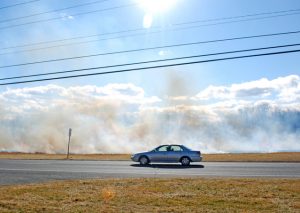Two recent cannabis product recalls have some marijuana businesses concerned about such scenarios becoming a widespread issue, particularly with more stringent testing regulations recently becoming mandatory. According to a report from Marijuana Business Daily, though, several testing labs have said there is little to be concerned about, especially as these regulations continue to balance out and become more integrated.
widespread issue, particularly with more stringent testing regulations recently becoming mandatory. According to a report from Marijuana Business Daily, though, several testing labs have said there is little to be concerned about, especially as these regulations continue to balance out and become more integrated.
The testing labs noted first of all that the two instances of recalls, both in late July, were self-imposed by the companies who manufacture the product. Thousands of marijuana products have passed lab tests and have moved along to retailer shelves. The data from these tests is double checked by the Bureau of Cannabis Control to help ensure product that should have failed the tests does not make it into stores. For the most part, companies have been able to keep up with the new regulations, and the recalls were reportedly a precautionary move by those particular businesses. As understanding of all regulations continues to grow stronger, incidents of product testing failures will continue to decline. Continue reading
 Cannabis Law Group's Medical Marijuana Legal Blog
Cannabis Law Group's Medical Marijuana Legal Blog





 numbers as a result of the blossoming cannabis economy. According to
numbers as a result of the blossoming cannabis economy. According to  Administration has revealed to investors the cost of the drug: $32,500 per year. This is reportedly on the low-end of original estimates between $30,000 and $60,000. Epidiolex, made with CBD and used to treat rare forms of childhood epilepsy, is said to be priced competitively with other epilepsy drugs on the market. This, however, is not other epilepsy drugs.
Administration has revealed to investors the cost of the drug: $32,500 per year. This is reportedly on the low-end of original estimates between $30,000 and $60,000. Epidiolex, made with CBD and used to treat rare forms of childhood epilepsy, is said to be priced competitively with other epilepsy drugs on the market. This, however, is not other epilepsy drugs. change the landscape of marijuana in the United States, possibly within the next month. Epidiolex contains an active ingredient of CBD found in marijuana, and was approved to treat severe forms of epilepsy in children.
change the landscape of marijuana in the United States, possibly within the next month. Epidiolex contains an active ingredient of CBD found in marijuana, and was approved to treat severe forms of epilepsy in children.  throughout the state. Many are saying the rampant fires are some of the worst in the state’s history, and are particularly devastating considering it was just last year that 1.3 million acres were annihilated by fires. An article from
throughout the state. Many are saying the rampant fires are some of the worst in the state’s history, and are particularly devastating considering it was just last year that 1.3 million acres were annihilated by fires. An article from  understand how marijuana use impairs driving. The study is the largest of its kind and seeks to gather some hard data on levels of cannabis and impacts on common driving scenarios, according to
understand how marijuana use impairs driving. The study is the largest of its kind and seeks to gather some hard data on levels of cannabis and impacts on common driving scenarios, according to  now officially the first former-Soviet Union nation to lift such a ban, according to a report from
now officially the first former-Soviet Union nation to lift such a ban, according to a report from  work in states where marijuana has been legalized by allowing them to benefit from their state’s laws without fear of losing their job.
work in states where marijuana has been legalized by allowing them to benefit from their state’s laws without fear of losing their job.  world’s largest marijuana market. California Growers Association, based in Northern California, is merging with Southern California Coalition out of Los Angeles to leverage their combined strength when voicing needs of the cannabis industry to political representatives, according to
world’s largest marijuana market. California Growers Association, based in Northern California, is merging with Southern California Coalition out of Los Angeles to leverage their combined strength when voicing needs of the cannabis industry to political representatives, according to  on a U.S. stock exchange by a marijuana producer. Ontario, Canada-based cannabis conglomerate Tilray went public on New York NASDAQ recently. The stock price spiked 30 percent in one day proving what we have been saying all along: cannabis is very, very good for business. According to a report from
on a U.S. stock exchange by a marijuana producer. Ontario, Canada-based cannabis conglomerate Tilray went public on New York NASDAQ recently. The stock price spiked 30 percent in one day proving what we have been saying all along: cannabis is very, very good for business. According to a report from